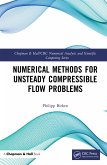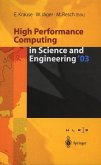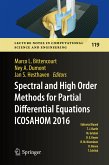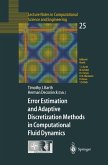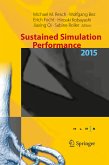Features
· Provides a road map, starting from the ideas of minimally invasive controlling of turbulent flows, to the ways of improving the existing regularization techniques with DCM, to the ideas of 'full defect correction' in both space and time and, finally, to the more complex embedding of the DCM into turbulence modelling by the 'correction' of the whole turbulence model
· Can be used for teaching a topics course on a Masters or Ph.D. level. It is even more suitable as a reference for CFD theorists and practitioners, with most of the methods being minimally invasive and, therefore, easy to implement in the existing/legacy codes
· Discusses the current challenges in turbulence modelling with defect correction, showing several possible directions for future developments. Two source codes are provided - one for a regularization technique and another for a novel turbulence model - in order to give an interested researcher a quick start to the topic of DCM in CFD.
Dieser Download kann aus rechtlichen Gründen nur mit Rechnungsadresse in A, B, BG, CY, CZ, D, DK, EW, E, FIN, F, GR, HR, H, IRL, I, LT, L, LR, M, NL, PL, P, R, S, SLO, SK ausgeliefert werden.




